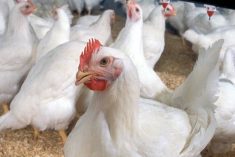Bolivian soybean farmers are urging leftist President Evo Morales to reconsider a ban on genetically modified crops.
The Andean nation is a small producer of soybeans compared to neighbours Brazil and Argentina, but output and exports of the oilseed have jumped in recent years due to improved crop yields and bigger plantings. Production should reach 2.4 million tonnes this year, of which about 80 per cent would be exported, industry groups say. Virtually all of that is GM varieties, which is why the “Pachamama” (or Mother Earth) law signed by Morales last month has rattled growers in the lowland east.
Read Also

Cabbage seed pod weevil the surprise top canola pest in Manitoba for 2025
Get set to scout this summer. After a few years of low profile in Manitoba, cabbage seed pod weevil populations, among a few other pests, boomed here in 2025.
Morales, a former coca farmer, is a vocal advocate of organic farming methods and says the legislation is a means “to live in equilibrium and harmony with Mother Earth.” The law also calls for limits on the expansion of farming into new areas and assigns a spiritual value to land beyond its social and economic function.
Some industry figures say uncertainty over the new rules could affect farmers’ plans.
“It’s possible with this uncertainty that some people will avoid sowing or sow less using any non-GM seeds they can get hold of,” said Fernando Asturizaga of the Anapo farming association.
“We want them (government officials) to understand the potential consequences of the measures contained in the Mother Earth legislation and to make changes or clarifications either in the implementation of this law or through a new law.”
Soy exports brought in about $800 million last year, making the oilseed the country’s third-biggest foreign currency earner after minerals and natural gas.
















